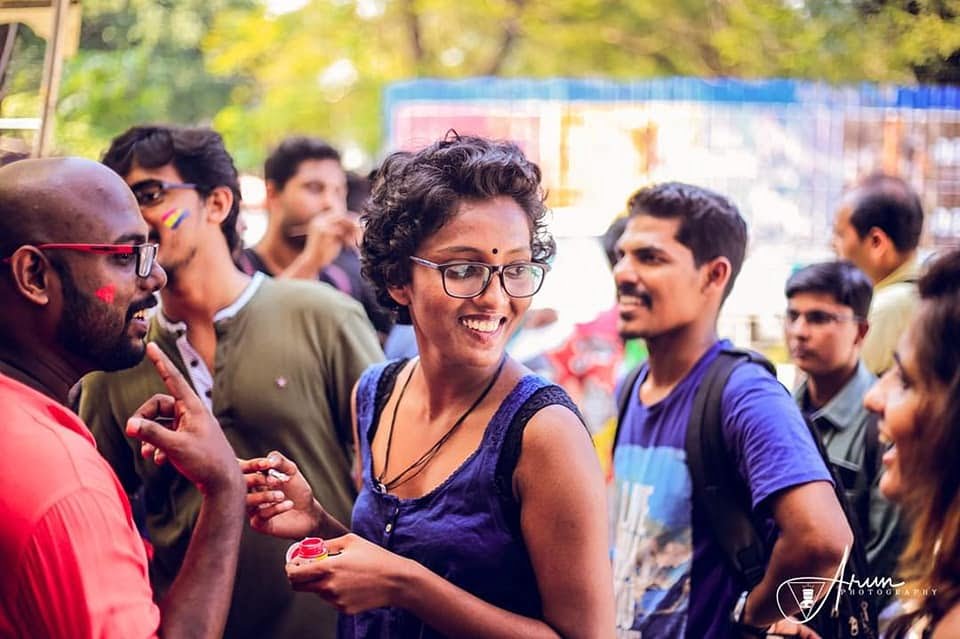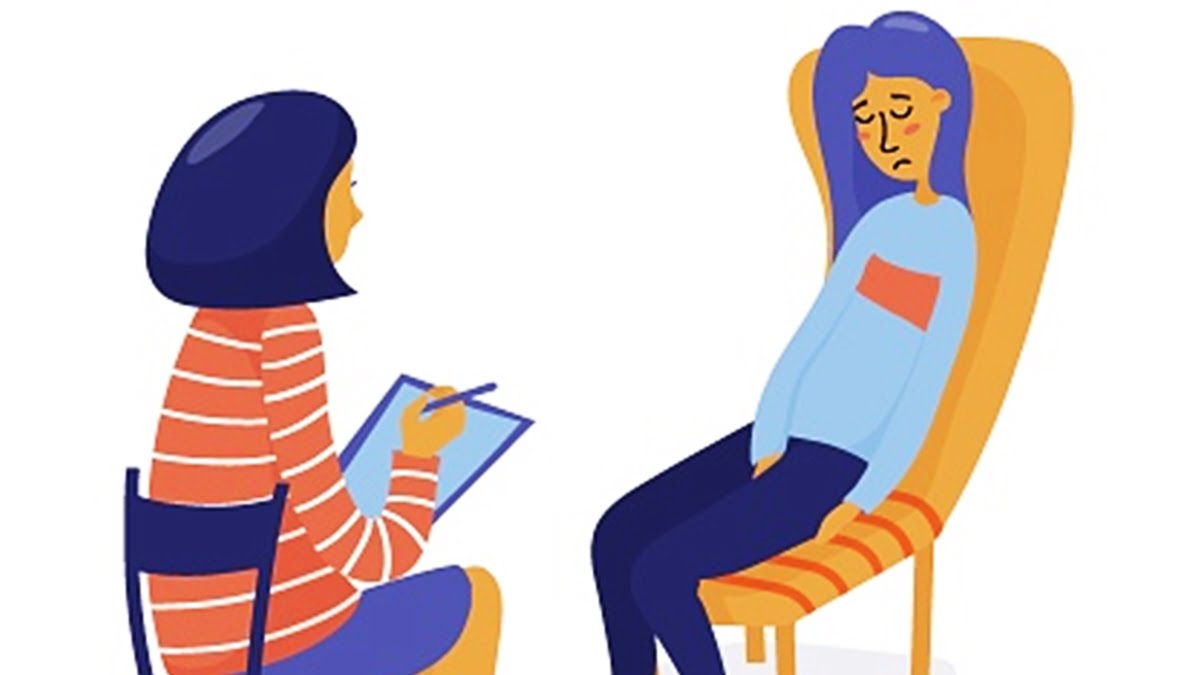Therapist: Why don’t you consider combing your hair, maybe?
Me: Combing my hair?
Therapist: Yes, groom yourself better. I think you will feel good.
Me: But I don’t care how my hair looks.
Therapist: You will, once you start looking better.
The Curious Cat
After months of staring at the ceiling and watching my hostel room close in on me, one December – in 2017, I think – I decided to visit a therapist at my hometown in Kerala. My father, who, to my surprise, was open to the idea, found a well-rated psychotherapist on Practo and booked an appointment for later that week.
My therapist was a man. I was not sure I was comfortable speaking to a man about my sexuality or sexual preferences, questions of which, I thought, had triggered this inexplicable sadness. I went into his cabin, remained quiet for what seemed like ages, and burst into tears when he assured me he was not going to rat me out to my father.
The crying must have felt cathartic, because I went back. Not once or twice, but seven times. He told me I was depressed, that my sadness was not as invalid as I thought, and that I could be ‘fixed’.
By our second or third session, I was a dam with a gigantic leak, and nothing could have stopped me from talking, or so I thought. I decided to tell the therapist I liked/loved multiple people at the same time – that I thought I was a polyamorous bisexual. “How does that work?” he asked. I explained what I knew. His eyes lit up with curiosity. In less than a second, from wanting to help me, he switched to studying me.
Over the next few sessions, the therapist shot multiple questions at me – he wanted to know how many partners I had, if they knew about each other, whether I have had sex with all of them (men and women), whether I have cheated on them, what they thought about me, and so on. As the hours went by (expensive ones at that), I felt like I was being watched – like a specimen. In fact, te therapist told me I was one of the ‘most interesting’ patients he has had. The discomfort grew by the session, and I shut him out, as easily as I let him in.
He was irked by my nonchalance, I could tell, and soon, the body policing began. I could not ignore his casual remarks about how shabby I looked, or why I wore my hair short, or how I have been gaining weight. That is when the therapist went on to suggest that ‘looking better’ could help me get out of depression. Rating my progress with the way my body looked was, in retrospect, the last straw.
On one of our final sessions, he asked me to get my thyroid tested. Once I was diagnosed with thyroid, I was relieved. I attributed all my sadness to a hormonal imbalance. The denial hurt me later, but I never went back to the therapist in question.
On one of our final sessions, he asked me to get my thyroid tested. Once I was diagnosed with thyroid, I was relieved. I attributed all my sadness to a hormonal imbalance. The denial hurt me later, but I never went back to the therapist in question.
Also read: What You Should Learn From My Experience With Therapy
The Love Guru
Neither is therapy free of bias, nor are therapists. After the death of actor Sushant Singh Rajput, social media was flooded with posts urging those in need of help to speak up and opt for therapy. While this conversation is very important, there needs to be a public discourse on sensitive therapy, or the lack thereof.
A year and half of denial and thyroid medication later, I began getting anxiety attacks. Friends suggested that I get back into therapy. I would brush it aside, recalling how emotionally taxing my experience with a therapist the previous time was. Soon, anxiety matured into self-harm. “That is it,” I thought. I went to another therapist – a woman, this time.
We engaged in a few minutes of small talk, or ice-breaking as she called it, and cut right to the point. “What is wrong?” the therapist asked. “I’ve often been getting anxiety attacks and I need it to stop,” I said. In a matter of minutes, we ended up speaking about my relationship(s), though I was careful not to bring it up this time. I told her I was involved with multiple people (two, at the time).
“How is that possible? Are both of them living here? Are they okay with it?”
“No, one of them is away.”
“Ah, I see. Nobody wants an absent boyfriend. You are probably compensating for that by going out with the guy here.”
“I don’t know.”
“You see, once you find the right guy, you won’t need multiple partners. This is just a phase.”
And there I was on the therapist’s notebook, a thoughtless 24-year-old, who has not found ‘the right guy’. Her dismissal left an imprint on me for months. Needless to say, there ended our conversation.
Also read: Problems With Conversion Therapy & The Search For Justice For Anjana
Who’s The Boss?
Since the emergence of psychology as a scientific discipline, women, queer people, and other “deviants” have been torn open and scrutinised, so that their behaviour could be fixed, and they could be pulled back into the heteronormative cycle of marriage and procreation. Conversion therapy is highly rampant in India till date, thanks to the institutional queerphobia that perpetuates families, schools, and governments.

Even those therapists, who advertise their ‘liberal’ views, cannot free themselves from the cultural laws that govern the Indian society. The dismissal of consensual non-monogamy as a ‘phase’ that one would/must grow out of, due to the absence of the ‘right’ heterosexual partner, is yet again an imposition of the traditional understanding of marriage/procreation within the structures of patriarchy and capitalism, and in the Indian context, Hindu nationalism.
What is even more dangerous is that the social and cultural conditioning of therapists also permits them to look at the person they are therapising from a position of power. For instance, I have consulted four psychologists so far, and barring one, all of them have given me intermittent reminders of how they were there to ‘fix’ me.
To put it plainly, insensitive therapy could get you to pay therapists for the satisfaction of their curiosities, so that they can morally judge you and further, chastise you into seeing the socially-acceptable path. Though their remarks may be a lot less violent and more subtle than those of conversion therapists, the trend is equally problematic.
What’s wrong with ‘fixing’, one might ask. To cite an example, the male therapist was curious to learn about my ‘deviant’ sexuality and sexual choices. His curiosity often translated into questions that I thought needed answering, because he was a professional who was supposed to know what he was doing. These were accompanied by sexist remarks pertaining to my body. One cannot ignore a therapist’s interests in therapising an individual. In this context, the position of an inquisitor, a man, with a higher moral standing in a society like ours granted him not just the power, but also the pleasure in ‘fixing’ me.
To put it plainly, insensitive therapy could get you to pay therapists for the satisfaction of their curiosities, so that they can morally judge you and further, chastise you into seeing the socially-acceptable path. Though their remarks may be a lot less violent and more subtle than those of conversion therapists, the trend is equally problematic.
A sub-editor working with an English daily, Meenakshy spends half her day watching movies, eating dosa, or both. Although she’s almost always zoned out and has the attention span of a fly, she loves dissecting cinematic, media and web content for their (oppressive) narratives. She can be found on Instagram and Twitter.
Featured Image Source: istockphoto




